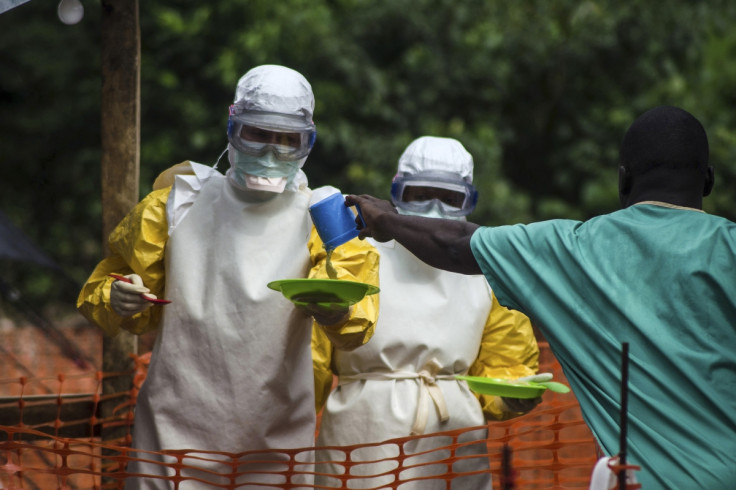Ebola Outbreak: UK Health Officials Warn Doctors to Watch for Signs of Killer Virus

British public health officials have issued a warning to doctors to watch for warning signs of the deadly Ebola virus as fears grow that the disease may appear on the shores of the UK.
The tropical disease has killed more than 670 people in Guinea, Liberia and Sierra Leone and took the life of US citizen Patrick Sawyer in Lagos, Nigeria.
Dr Brian McCloskey, director of global health at Public Health England, said that the government agency was taking action to ensure that the virus did not affect the UK population.
"[It is] the largest outbreak of this disease to date," he said. "And it's clear the outbreak is not under control.
"We have alerted UK medical practitioners about the situation in West Africa and requested they remain vigilant for unexplained illness in those who have visited the affected area."
Dr McCloskey said the death of Patrick Sawyer, after falling ill on a plane from Liberia to Nigeria, is a "cause for concern". On his route, he made a stopover in Ghana and changed planes in Togo before finally reaching his destination.
There is a possibility that Sawyer passed the disease to anyone sitting close to him on the plane or who used the toilet after him.
However, the doctor said that health officials were using "prepatory thinking rather than alarm".
Professor David Heymann, head of the Centre on Global Health Security at Chatham House in London, condemned the lack of international cooperation on the issue, which allowed an Ebola victim to fly out of an affected area.
"There has been a lack of international cooperation as to the recommendations of what needs to be done [to stop the disease spreading] – and much greater collaboration is needed.
"But at the same time its false to say that border controls can stop infections from spreading – you can be not showing symptoms or even travel when you have symptoms and keep them hidden, as has happened with doctors in the past."
The highly contagious disease is one of the deadliest in the world and does not yet have a known cure.
The symptoms of the virus include fever, sore throat, diarrhea and internal and external bleeding, with a 90% fatality rate.
© Copyright IBTimes 2025. All rights reserved.






















